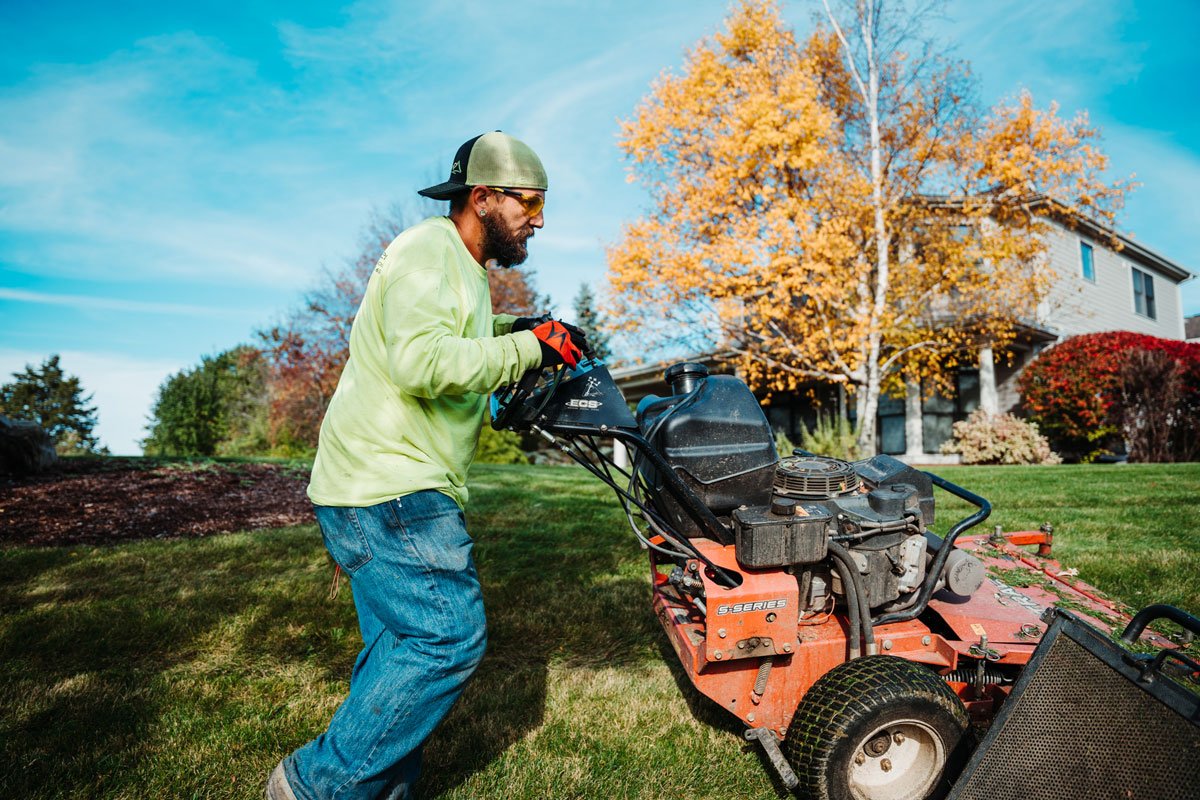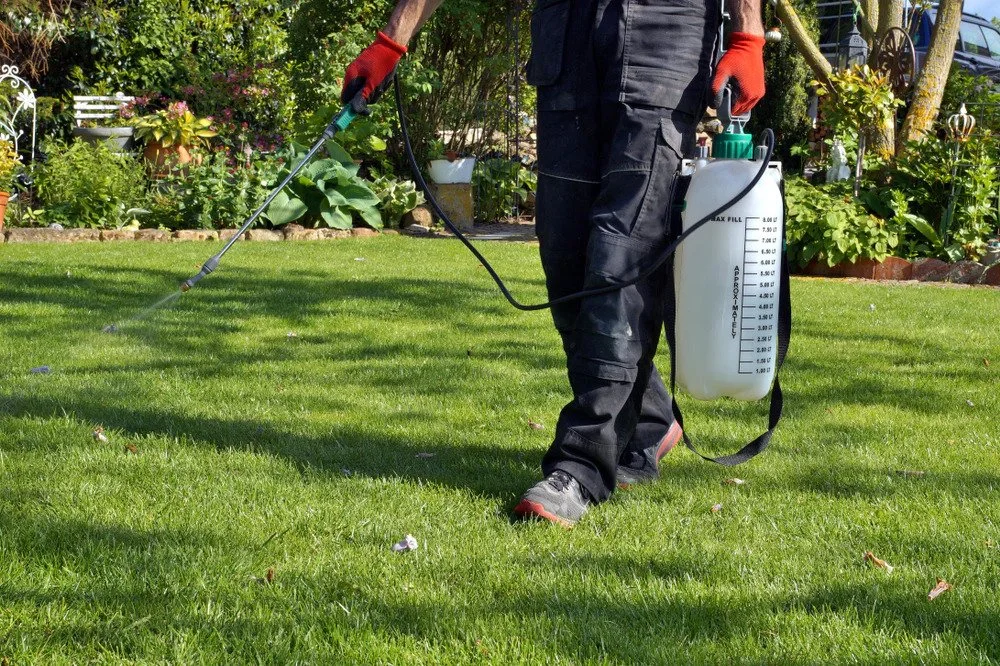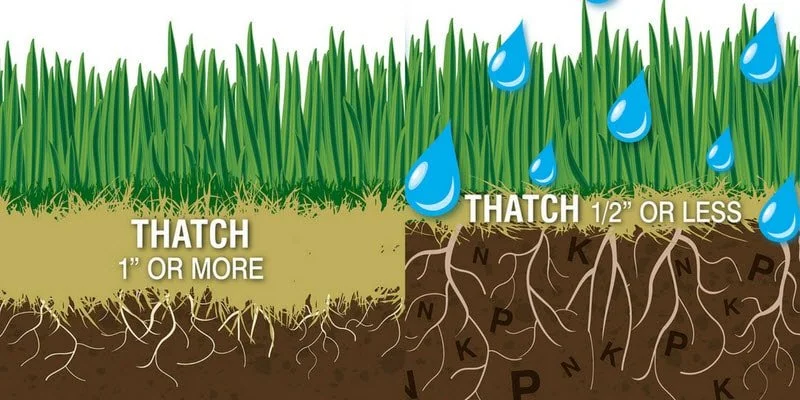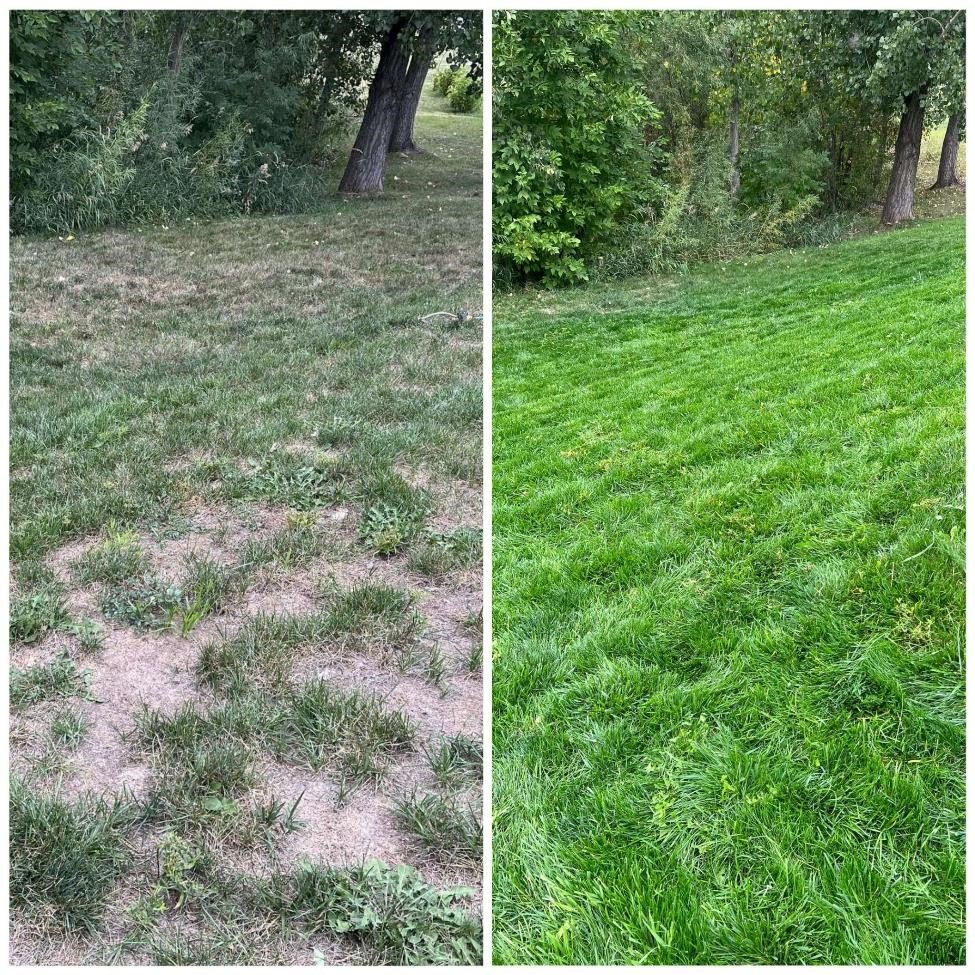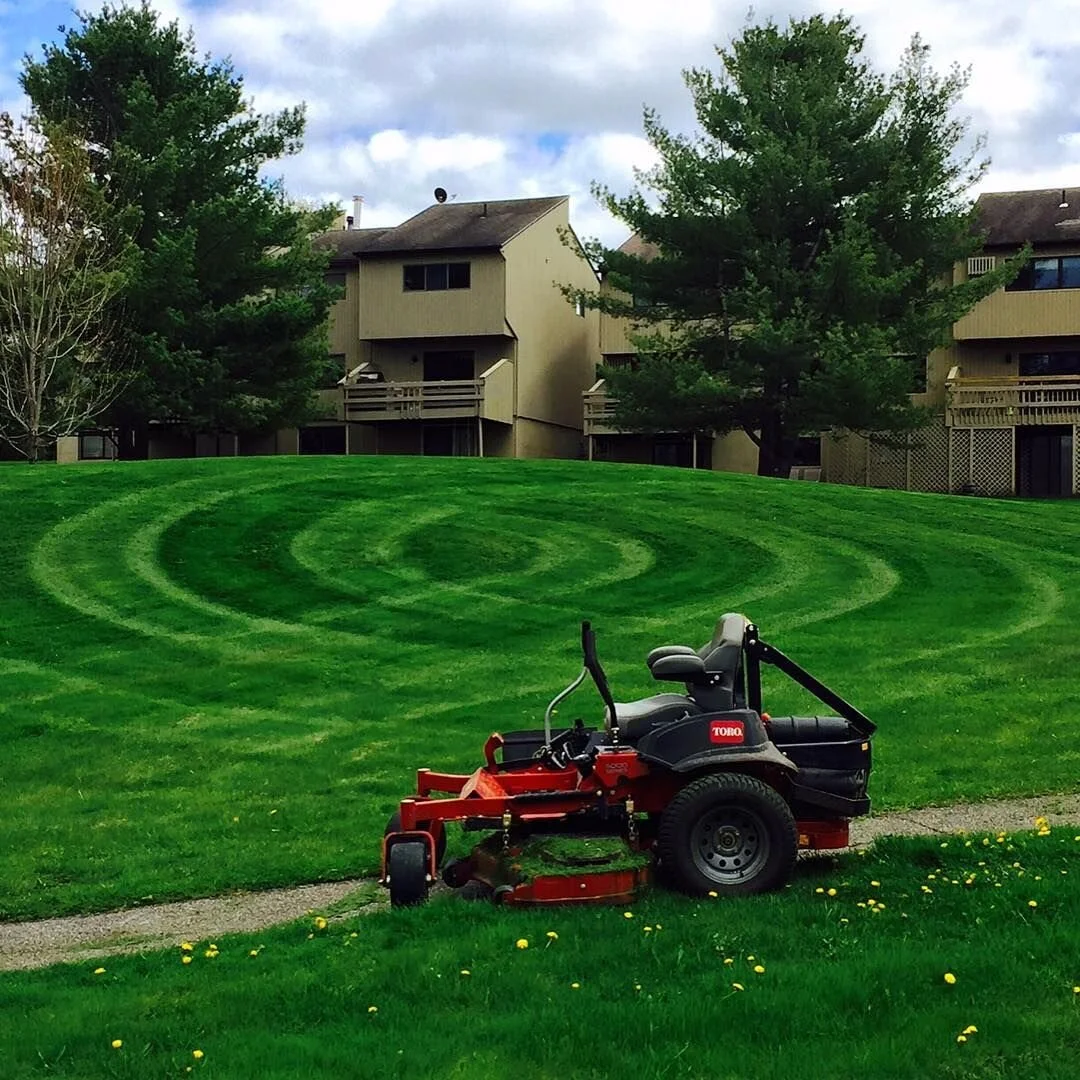The Benefits of Aerating, Dethatching, and Overseeding Your Lawn for Vermont Winter Prep (Without Chemicals)
As autumn settles in and the Vermont landscape begins its transition to winter, it’s a great time to give your lawn some extra care to ensure it survives the cold months and thrives in the spring.
While chemical treatments like synthetic fertilizers, herbicides, and pesticides are commonly used to maintain lawns, there are more sustainable, environmentally-friendly alternatives that can lead to better long-term results.
Aerating, dethatching, and overseeding your lawn are powerful, natural ways to prep your grass for winter. Not only do these techniques boost the health of your lawn, but they also offer a safer, chemical-free alternative to conventional lawn care practices.
In this article, we’ll explore the benefits of aeration, dethatching, and overseeding, our preferred methods of natural lawn care, which will leave you with a healthier lawn, while also protecting the environment in Burlington and Chittenden County.
Aerating Your Lawn: Unlocking Soil Health (vs. Chemical Fertilizers)
Aerating involves creating small holes in the soil to allow better airflow, water absorption, and nutrient penetration. This process encourages deeper, healthier root growth, and prepares the soil for the colder winter months.
Benefits of Aerating:
Improved Soil Health: Aeration helps prevent soil compaction and promotes better root development.
Increased Nutrient Absorption: More oxygen and water reach grass roots, ensuring a stronger, healthier lawn.
The Chemical Alternative: Synthetic Fertilizers
Many Burlington-area homeowners rely on synthetic fertilizers to "feed" their lawn, especially in fall. However, these fertilizers often contain high levels of nitrogen, phosphorus, and potassium, which can be harmful to the environment. Overusing them can result in nutrient runoff, which pollutes local Vermont waterways, harming aquatic life in our rivers and Lake Champlain.
Why Aeration is a Better Choice:
Unlike synthetic fertilizers, aeration addresses the root cause of poor soil health—compaction. By allowing natural nutrients to reach the grass roots without chemicals, aeration strengthens your lawn over time, creating a healthier environment in the long run.
Dethatching: Clearing the Path for Healthy Grass Growth (vs. Herbicides and Pesticides)
Dethatching is the process of removing the dense layer of dead grass and organic matter (thatch) that can accumulate on top of the soil. In Vermont’s cooler climate, where lawns tend to grow slower in the fall, thatch can build up quickly, blocking sunlight and nutrients from reaching your grass.
Benefits of Dethatching:
Prevents Disease: Dethatching removes dead organic matter that can harbor pests and diseases.
Boosts Grass Health: By allowing better air circulation, dethatching promotes stronger, thicker grass growth.
The Chemical Alternative: Herbicides and Pesticides
Many Chittenden county homeowners use chemical herbicides to remove weeds and pesticides to control insects and other lawn pests. While these chemicals may seem effective in the short term, they often disrupt local ecosystems by harming beneficial insects, pollinators (like bees), and even soil microorganisms that are essential for healthy soil.
Why Dethatching is More Sustainable:
Instead of relying on harsh chemicals to control pests, dethatching naturally prevents the buildup of thatch, which can harbor weeds and pests. By improving soil health and air circulation, dethatching supports a healthier, more resilient lawn that can naturally fight off pests and diseases.
Overseeding: Revitalizing Your Lawn for Spring (vs. Seed-Enhancing Chemical Coatings)
Overseeding is the practice of spreading fresh grass seed over your existing lawn to improve density and coverage. Fall is the ideal time for overseeding in Chittenden County, as cooler temperatures and seasonal rain provide the perfect growing conditions for new grass.
Benefits of Overseeding:
Fills Bare Spots: Overseeding helps fill in thin or bare areas, creating a more uniform lawn.
Improves Lawn Resilience: Fresh seed encourages stronger grass that is better equipped to handle environmental stressors like drought and pests.
The Chemical Alternative: Seed Coatings and Growth Regulators
Some people use grass seed that has been coated with chemicals designed to speed up growth, enhance germination, or control pests. These "seed enhancers" often contain pesticides or fungicides that can contaminate soil and water and harm non-targeted organisms that are important to the Vermont ecosystem.
Why Overseeding is a Better Approach:
When overseeding without chemicals, you allow your grass to grow naturally, promoting biodiversity and a healthy lawn ecosystem. It’s a more sustainable, chemical-free method that ensures your lawn will thrive season after season without the risk of harmful runoff or pollution.
Why Choose Natural Lawn Care Over Chemicals?
As Burlington area homeowners continue to focus on sustainability and environmental stewardship, choosing natural lawn care methods over chemical treatments is more important than ever. Here’s why aerating, dethatching, and overseeding are better alternatives to synthetic fertilizers, herbicides, and pesticides:
Healthier Soil: Natural lawn care practices like aeration and dethatching improve soil structure, which is crucial for long-term lawn health. Over time, chemicals can degrade soil quality and reduce its ability to support strong, healthy grass.
Less Harm to Local Ecosystems: Pesticides and herbicides can harm local Vermont wildlife, including bees, birds, and beneficial insects. Natural lawn care promotes a balanced ecosystem where all organisms can thrive.
Safer for Pets and Children: Many chemical treatments are toxic to pets and children. By choosing chemical-free lawn care, you reduce the risk of exposure to harmful substances.
Reduced Water Pollution: Fertilizer and pesticide runoff can contaminate local water supplies, harming aquatic life and polluting our streams, rivers, and Lake Champlain. Aeration and dethatching, on the other hand, help ensure better water retention and natural nutrient cycling in your lawn.
Choose a Healthier, Chemical-Free Approach to Lawn Care
This fall, skip the chemicals and embrace a more sustainable, eco-friendly approach to lawn care with aerating, dethatching, and overseeding. These natural lawn care practices will not only help your lawn survive the winter but will also contribute to a healthier local ecosystem and a greener, more vibrant Vermont.
For the best results, consider hiring a professional Burlington landscaping service that specializes in chemical-free lawn care. They can help you get your lawn ready for winter without relying on harsh, environmentally-damaging chemicals. A little investment now will ensure a healthier, greener lawn come spring—naturally.
Get Ready for Winter with our Expert Lawn Care Services in Chittenden County
If you're ready to prepare your Vermont lawn for winter the natural way, you can trust Pinnacle Properties’ lawn care experts to handle aeration, dethatching, overseeding, and other fall clean-up tasks. Our professional team can tailor our services to your lawn’s unique needs, ensuring the best possible results without the use of harmful chemicals.
Pinnacle Properties Offers Lawn Care and Winter Prep Services in Chittenden County:
Aeration and Dethatching: Our experienced landscapers use specialized equipment to aerate and dethatch your lawn, ensuring it gets the oxygen and nutrients it needs for the winter.
Overseeding: Our local lawn care specialists can recommend the right grass seed for your area and climate, maximizing your lawn’s potential for a lush spring.
Fall Clean-Up: We also offer fall clean-up services, including leaf removal, pruning, and general lawn maintenance.
Request a quote and schedule your Fall service today!

